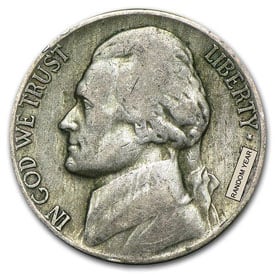Fiat currencies that are undergoing inflation eventually reach the point where the smallest unit of account becomes practically worthless – more trouble to handle and account for than it's worth. That is the current state of the cent.
Few people today would bother to pick up a penny laying on the ground. Back in 2018, Rep. Brad Sherman (D-CA) likened pennies to "litter" in a speech on the House floor:
I'm going to suggest that you simply abolish the penny. It isn't currency, it's litter. If a police officer saw me throw pennies on the ground, I'd get a ticket for littering, and if I tried to pay that ticket in pennies, the judge would be very upset.
The penny has been our lowest unit of currency since 1857, since Lincoln. Now he wouldn't throw pennies on the ground, and call it litter, because back then a penny was worth more than a dollar is today…
Of course, Sherman doesn't take responsibility for his own role in trashing the value of the currency through his support of massive deficit spending and the inflationary monetary system that enables it.
It currently costs the government more than 2.5 cents to produce a penny.
The cent simply makes no economic sense.
The nickel is also now in the red. It costs more than 10 cents to mint and distribute.
Last week, Senators Joni Ernst (R-IA) and Maggie Hassan (D-NH) introduced legislation to formally debase the nickel. It would direct the U.S. Mint to produce nickels (which currently contain actual nickel, along with copper) out of cheaper materials.
Others, such as Art Carden of the American Institute for Economic Research, are calling for pennies and nickels to simply be retired as functionally useless. He writes:
Ditching small coins is about more than narrow financial savings. It is also a test case for effective governance. Getting rid of the penny is an absolute economic slam dunk…
Pennies and nickels are politically resilient. Why? It's a straightforward story of concentrated benefits and dispersed costs that is pretty easy to understand.
To stop minting small coins would, of course, hurt the people who mine, refine, and transport the raw materials that go into them. There are unionized government employees at the US Mint with a stake in it.
These points are well taken.
However, neither cheapening nor eliminating coins that are too costly to produce is a solution to the underlying problem of currency depreciation.

Quarters and dimes (which contained 90% silver up to 1964) have already been debased.
So have pennies. They were minted out of copper until 1982. They are now made mostly of zinc.
Nickels even included silver between 1942 and 1945, when Congress authorized a temporary removal of nickel, a critical metal used in World War II production. Most war nickels contained 35% silver.
Pre-1965 silver coins, copper pennies, and war nickels are now valued based on their intrinsic metal content.
Bullion dealers including Money Metals Exchange sell bags of silver quarters and dimes, silver nickels, as well as copper pennies to sound money hoarders who want exposure to hard money as well as to have handy, small-denomination instruments for barter transactions.
The coins that circulate today are effectively counterfeit versions of the originals. So are paper dollar bills.
The Founders defined a dollar in terms of a fixed weight of gold or silver. A modern Federal Reserve note, which cannot be redeemed for any quantity of precious metal, is a counterfeit version of a Constitutional dollar.
Real solutions to the problems with U.S. coinage and currency start with real money.

